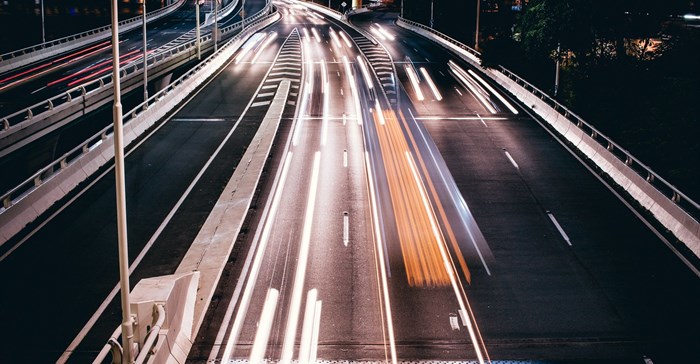We won't scrap e-tolls - Sanral

The paper reported on Tuesday that Sanral is considering throwing its weight behind a fuel levy after most Gauteng motorists still refuse to pay e-tolls.
But Sanral spokesperson Vusi Mona told Fin24 fuel levies have always been under consideration.
"It was not regarded as the best funding model for the Gauteng Freeway Improvement Project (GFIP). Of concern is that the fuel levy is a regressive tax that impacts disproportionately on the poor. With e-tolls, taxis and buses are exempt. With a fuel levy, they are not."
Implementation of a provincial fuel levy
He said implementation of a provincial fuel levy would be difficult and costly to administer. It would also not be equitable, punishing motorists from other provinces who buy fuel in Gauteng.
Organisation Undoing Tax Abuse (OUTA) chief operating officer Ben Theron said Sanral is sending out mixed signals by running a renewed campaign to collect on outstanding e-toll bills, despite its comments.
"Having convinced government to adopt this poorly researched and irrational scheme, Sanral now turns to government for funds to bail it out of the mess it created."
Mona said Sanral could not make the decision to abandon e-tolls. "Government selected tolls as the most affordable, equitable and fair way to fund the GFIP."
He said without the toll revenue, funds would have to be allocated from the fiscus to repay the outstanding loan.
Fin24 earlier reported that most motorists in Gauteng are still not paying e-tolls, with Sanral disclosing that only about 30% of invoices generated to drivers on Gauteng's tolled roads have been paid over a 24-month period. READ: Majority of motorists still not paying e-tolls
Of the more than 1.8 billion invoices issued in the past 24 months, more than 1.3 billion (more than 71%) were unpaid.
As at the end of March 2016, the amount owed to e-tolls by non-registered users came to R7.2bn.
Funds for future projects drying up
Mona said the GFIP was intended to be a three-phase project, but its future is in jeopardy. "We do note with concern the lack of payment of toll fees. With insufficient funding available to Sanral, phases two and three are unlikely to be implemented."
The Citizen quoted a Sanral official as saying that Sanral is under pressure to decide how future road projects could be funded as money dries up. Whether that will be through tolling or through the ficus remains an open debate, the official said.
Sanral is concerned about funding big projects going forward, Mona said. "However, as engineers, we are committed to planning and designing roads for the future for all roads users. We will look to government to allocate funds to enable the execution of these projects."
He said the transport minister, as Sanral's shareholder, can approach National Treasury if he deems it necessary.
Engineering their own downfall
Theron said it is interesting that Sanral feels its financial solutions lie in the hands of the government. The fact that Treasury's cupboard is almost bare would make Sanral's job that much more difficult, he said.
"It was Sanral's board that hatched and proposed this supposedly efficient e-toll scheme to the government," Theron said.
Sanral had every opportunity in 2007 - when the Gauteng freeway upgrade plan was being introduced - to propose that the freeway upgrade bonds be financed by way of a slight increase in its annual allocation from the National Treasury, Theron explained.
This could have been sourced from a 9% to 10% increase in the fuel levy at the time.
"It would have generated the necessary security to settle the bonds, which would then have been almost settled by today," he said.
Outa chairperson, Wayne Duvenage, questioned why Sanral is still running an expensive litigation process to summons motorists who fail to pay e-toll bills for what it calls an "irrational" scheme.
"How can Sanral say in one breath that the scheme has virtually collapsed and that a new financing solution should be introduced, yet then want to sue people for not supporting the scheme which was literally stillborn from the outset?"
Mona said Sanral has an obligation to those road users who do pay their toll fees to pursue the outstanding fees. He said a continuous process of debt collection and legal procedures is currently under way to collect the outstanding toll fees. "Thousands of summonses have been served," said Mona.
Source: Fin24 via AllAfrica
Source: allAfrica

AllAfrica is a voice of, by and about Africa - aggregating, producing and distributing 2000 news and information items daily from over 130 African news organisations and our own reporters to an African and global public. We operate from Cape Town, Dakar, Lagos, Monrovia, Nairobi and Washington DC.
Go to: http://allafrica.com/








